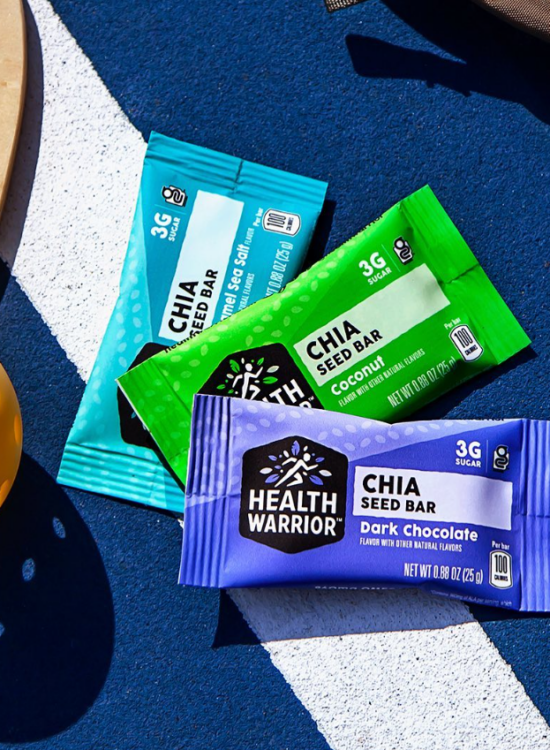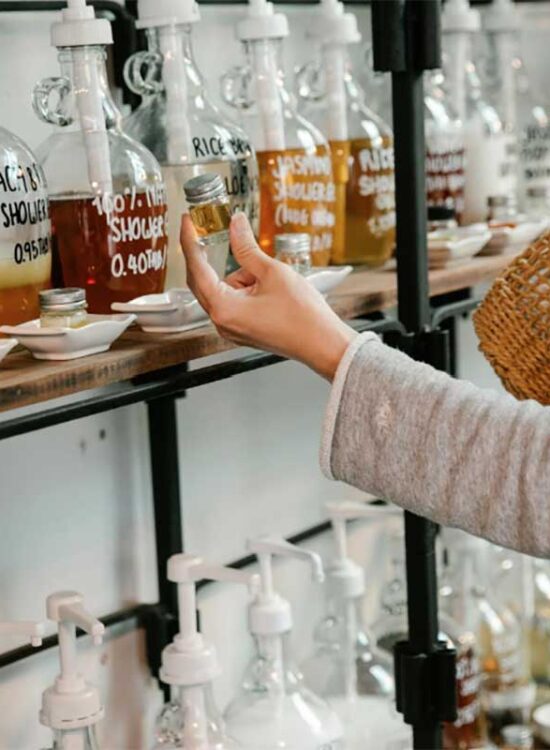The Strategic Advantages of Co-Manufacturing in the Beauty and Personal Care Industry
December 3, 2024
In 2023, the global beauty and personal care products market size was estimated at USD 557.24 billion in 2023 and is expected to grow at a CAGR of 7.7% from 2024 to 2030. As regulations tighten and the demand for sustainable products grows, the industry is undergoing significant transformation.
At GroundForce Capital, we recognize co-manufacturing as a strategic solution for companies navigating these changes, enabling them to maintain innovation, scale efficiently, and meet evolving consumer demands.
Why Co-Manufacturing?
Co-manufacturing enables BPC companies to outsource key production processes–ingredient sourcing, product formulation, and packaging–allowing them to focus on delivering products that are effective, safe, and aligned with growing demands for sustainability. By leveraging the expertise and infrastructure of established manufacturers, companies can remain agile and innovative without being bogged down by full-scale production.
Navigating regulatory changes
The 2022 Modernization of Cosmetics Regulation Act (MoCRA) represents the most significant regulatory shift in the BPC industry since the 1938 Federal Food, Drug, and Cosmetic Act. These updated regulations place stringent requirements on companies to ensure product safety, ingredient transparency, and quality assurance.
For small and mid-sized companies, the cost of compliance can be overwhelming, making it difficult to bring products to market. By partnering with co-manufacturers who already have the infrastructure in place to meet these regulatory standards, companies can focus on product development and marketing while ensuring their products meet the latest safety and compliance requirements. This is especially crucial for start-ups that might otherwise be barred from entering the market due to the high cost of regulatory compliance. For larger businesses, co-manufacturing can help expand product lines and innovation without diverting resources from regulatory oversight.
Meeting modern consumer expectations
Today’s beauty consumers are more informed and discerning than ever. They demand products that not only work but also align with their values. BPC companies are under pressure to deliver on three key fronts:
- Performance: Products must deliver as promised – whether it’s a sunscreen protecting from UV damage or waterproof mascara that lasts through any condition. Efficacy is non-negotiable.
- Safety: The age of “acceptable” side effects is over. Products must be free from harmful chemicals and should not cause irritation or breakouts. Consumers want this peace of mind that their BPC products are not doing more harm than good.
- Sustainability: Consumers want products that are better for both people and the planet. This means using recyclable packaging, cruelty-free ingredients, and ethical sourcing practices.
Co-manufacturing plays a critical role in helping companies meet these expectations. Companies such as Tata Harper and Briogeo have leveraged co-manufacturing partnerships to uphold their commitments to clean ingredients and transparency, without compromising on scale or innovation.
Empowering small and mid-sized brands
The operational challenges of building a beauty or personal care company can be daunting.
Co-manufacturing can provide cost-effective access to advanced manufacturing capabilities, empowering early-stage companies to focus on growth and product development without managing complex production logistics. For mid-sized brands, co-manufacturing offers the flexibility needed to handle seasonal product launches and inventory shifts, allowing them to stay nimble in a fast-moving market.
Driving Innovation and Sustainability
Innovation is at the heart of the beauty industry, and co-manufacturing can play a crucial role in driving that. From reef-safe sunscreen to cruelty-free testing, growing brands like Supergoop! are setting a new standard for clean beauty.
Through co-manufacturing partnerships, companies can access cutting-edge technologies like biotech and artificial intelligence, enabling them to experiment with new formulations and eco-friendly packaging. These innovations are not only beneficial for consumers but also for the planet, as they reduce the environmental impact of production and packaging.
As the BPC industry shifts toward a circular economy, companies are moving away from the traditional linear model of production and disposal. Instead, the focus is on reducing waste and increasing reuse through refillable packaging and biodegradable materials.
This shift is gaining momentum, with the global market for circular beauty products expected to reach $4.2 billion by 2032. One example is the growing popularity of refillable packaging, with brands like Chanel and Fenty Beauty adopting these solutions including refillable skincare jars and lipstick tubes to reduce single-use plastic waste.
According to Mintel, the demand for refillable beauty products in key markets such as the U.S., UK, and France surged by 279% between 2017 and 2023, reflecting a growing consumer preference for sustainability, even when refills come at a higher initial cost.
Co-manufacturers are at the forefront of this movement, providing the infrastructure needed to produce biodegradable packaging materials and implement refill systems. This makes it easier for companies to meet regulatory standards while offering eco-friendly solutions.
For example, Polyethylene resins, a breakthrough in sustainable packaging, are being developed as a replacement for traditional plastics and are capable of degrading in a landfill environment in less than three years.
The Win-Win-Win for the BPC Industry
In a growing industry that bridges social responsibility with efficiency, co-manufacturing can offer a win-win-win scenario for all parties involved:
- Companies can focus their time on scaling operations, driving innovation, and maintaining compliance without the distractions of managing production.
- Co-manufacturers can provide the expertise and infrastructure needed to meet regulatory demands while staying competitive in a rapidly evolving market.
- Consumers benefit from safer, cleaner, and more effective products that align with their values.
In an era where consumer expectations and regulatory pressures are ever-evolving, co-manufacturing will be key to helping beauty and personal care brands stay ahead, enabling them to innovate, scale, and meet the growing demand for sustainable, effective, and transparent products.



